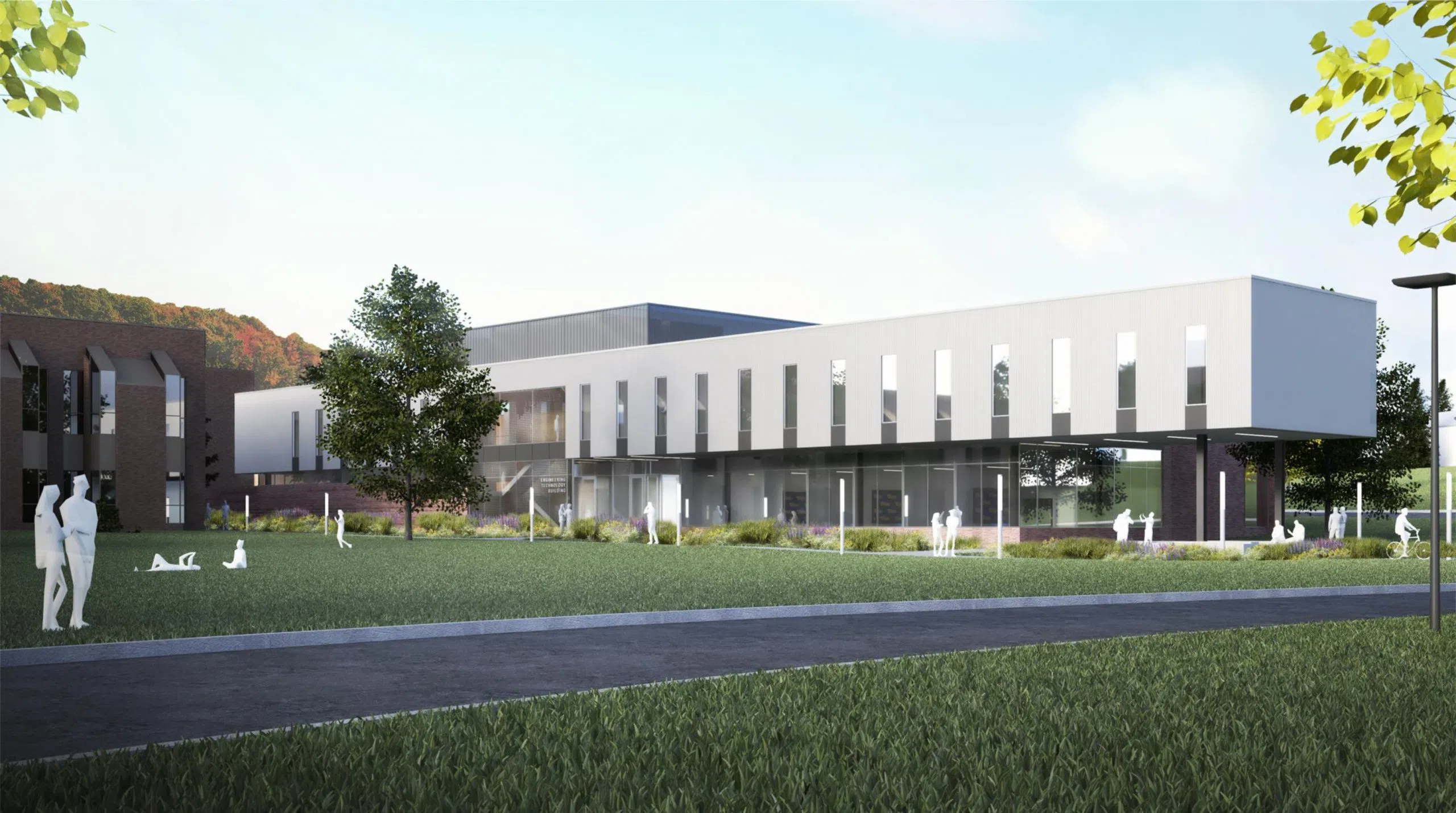The $3 million grant from the Redevelopment Assistance and Capital Program brings the University of Pittsburgh at Bradford one step closer to building its new engineering and computer information technology building.
On Wednesday, Rep. Marty Causer, R-Turtlepoint, announced that the university had received $3 million in RACP funds, which will support the new $22 million engineering and information technology building.
“We are profoundly grateful to Marty for all of his help in securing these funds for our exciting new building,” said Dr. Catherine Koverola, Pitt-Bradford’s president. “Marty has been a steadfast supporter of Pitt-Bradford for many years, and we especially appreciate his help on this exciting new project.”
“This new building will be a headquarters of innovation on our campus,” Koverola said, “where students will work on highly specialized projects and collaborations, so they are well prepared for STEM-related careers in our region and beyond.”
Currently, the project is in the design phase. Pitt-Bradford officials anticipate breaking ground in 2021 for the new building, which will be built on the lawn of Hanley Library, parallel to West Washington Street and the Lester and Barbara Rice House residence hall built in 2014.
The two-story building will house many dedicated spaces, including a strength and materials lab, a fluid dynamics lab with a small hydro tunnel to test designs, a maker space with 3-D printing, and a virtual reality and augmented reality lab.
The building will be home to existing majors, energy science and technology, computer information systems and technology, and petroleum technology, as well as new majors, mechanical engineering technology and energy engineering technology.
“Without this new building to house our specialty equipment and labs,” said Matt Kropf, associate professor of petroleum technology, “we wouldn’t be able to offer these new engineering technology programs that are in demand for our students. And without these new majors, our region’s need for a locally trained and skilled workforce would continue to go unmet.”
For years, industry and manufacturing leaders in the region have struggled to fill vacant engineering and technology-related positions due to a lack of well-trained and well-prepared employees.
Chris Napoleon, a Pitt-Bradford alumnus and owner of Napoleon Engineering Services in Olean, N.Y., said, “Pitt-Bradford has an opportunity to make a difference in the lives of our local young engineering minds and support the employee needs of our manufacturing base.”
Koverola added, “Having this building will not only provide well-prepared graduates for regional industries and manufacturers but also keep these talented and creative young people in our region, which will help to energize and revitalize our communities.”
Having the new facility also will enable the university to develop new partnerships in the region.
In addition to providing an ideal learning environment for students, Kropf said, the facility will help “open up new opportunities for community partnerships, such as promoting new business ventures and enhancing the research and development abilities of local industries.”
Currently, the university is recruiting two new faculty members for the new engineering programs as well as two faculty members in the computer information systems and technology program, all to start in fall 2021.
HARRISBURG – Two Bradford-area projects have been awarded a total of $4 million in state redevelopment funding, Rep. Martin Causer (R-Turtlepoint) announced today.
The University of Pittsburgh at Bradford will receive $3 million to help bring new engineering and information technology training opportunities to the region, while the YWCA of Bradford will receive $1 million toward construction of its new facility.
“The engineering and IT training initiative will be a game-changer for our local economy, enabling employers to grow and expand here and giving more young people the opportunity to pursue a good-paying career while staying close to home,” Causer said. “It is such an important investment in our community’s future and our children’s future.
“Equally important is the investment in a new YWCA facility, helping the agency continue its work in aiding victims, providing mental health services, and supporting people in need through its food pantry and shelter,” Causer said. “It also helps the community by contributing to the revitalization of the Second Ward area of the city.”
The Pitt project involves building a new academic building, adjacent to the Hanley Library, to house engineering labs, engineering shops, computer labs (including a Virtual Reality lab and a Systems, Networks and Projects lab), the campus IT hub, classrooms and related offices. The design phase is underway with construction expected to begin this coming spring. The funding announced today supplements prior state investments of $3 million. The bulk of the $22 million project cost will be funded by the university and private donors.
Officials expect the project to create construction jobs as well as 10 new permanent faculty and staff jobs associated with teaching and supporting the academic programs. Additionally, 24 teaching jobs will be retained through the project. The program expansion is expected to generate an average of 50 students each year and support 200 students after the fourth year. According to the state Department of Labor and Industry, students studying these majors will graduate into rapidly growing career fields.
The YWCA project involves construction of a 14,000-square-foot campus facility, which will house offices, victim resources, mental health/counseling facilities, a food pantry and shelter housing. The 6,000-square-foot shelter building will be two stories with sleeping areas for up to 12 people, as well as common areas, child areas, and living, kitchen, laundry and bathroom facilities on both floors. The YWCA project is estimated to cost $4.33 million, with funding coming from its ongoing Capital Campaign and a USDA loan.
Funding for both projects comes from the state’s Redevelopment Assistance Capital Program.


